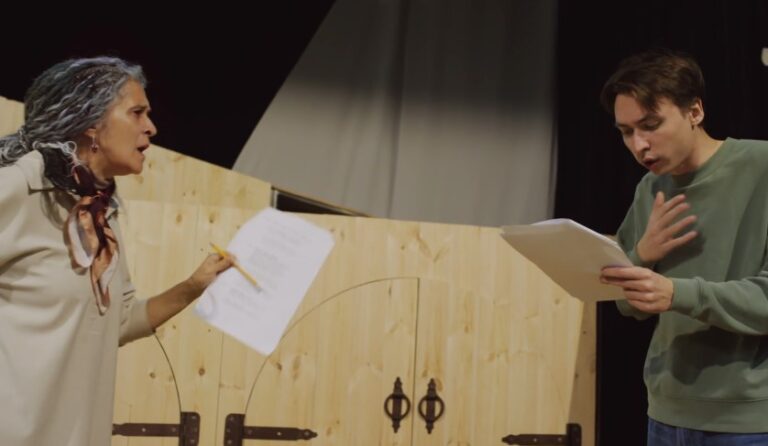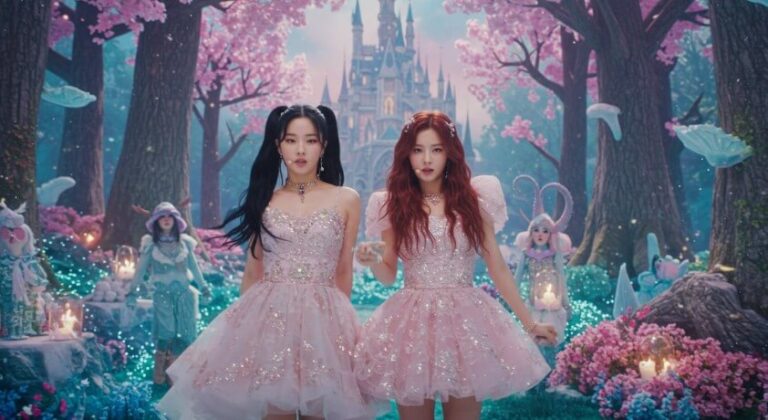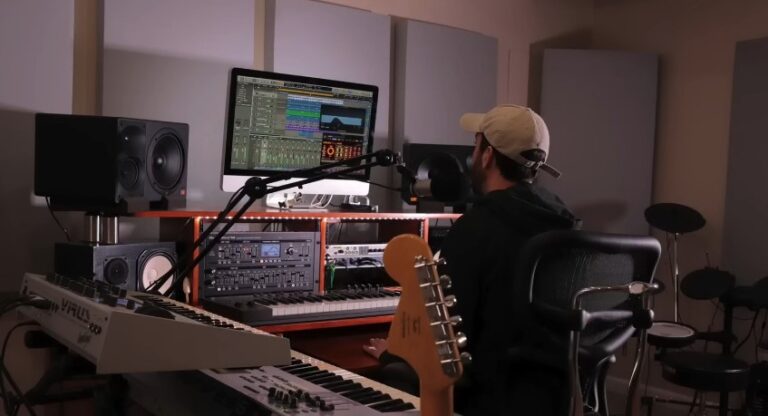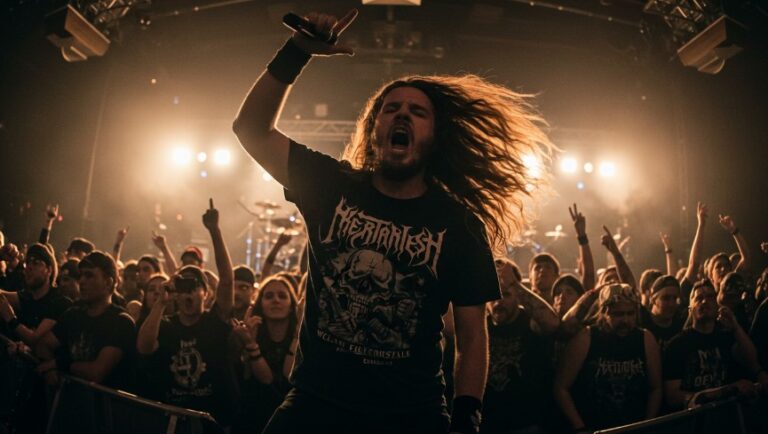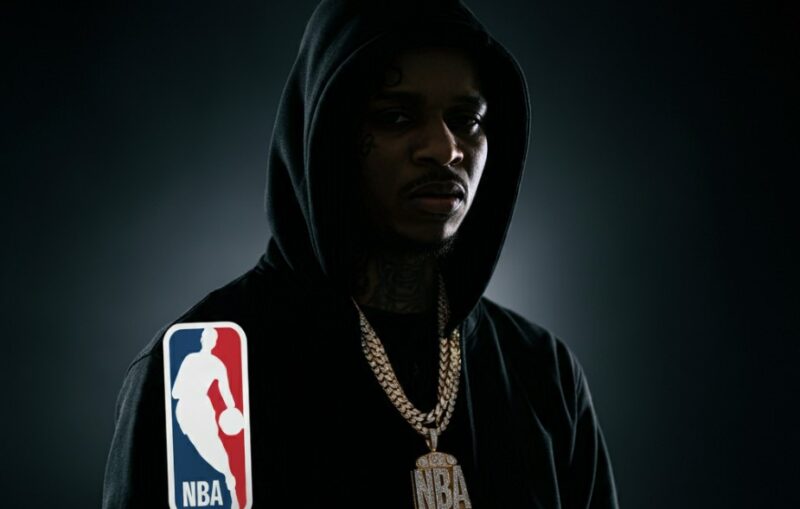Basketball and hip-hop have long influenced each other, with figures like Kobe Bryant, Allen Iverson, and Damian Lillard shaping both sports and hip-hop culture.
These NBA legends impacted fashion, lifestyle, and the meaning of belonging to the hip-hop community.
Through music, style, and attitude, they played a major role in bridging the worlds of basketball and hip-hop, making each more powerful and connected.
Table of Contents
ToggleKobe Bryant – The Mamba
Kobe Bryant’s impact on hip-hop culture is rooted in his “Mamba Mentality,” which emphasized relentless focus, resilience, and dedication—traits he carried over to music.
Although his music career was brief, Kobe released a rap single titled “K.O.B.E.” featuring Tyra Banks in 2000, and he signed with Sony Entertainment, aiming to build a music career alongside his basketball legacy.
He collaborated with prominent artists, including Brian McKnight and even worked with Nas and 50 Cent.
Though the album he planned with Sony was ultimately shelved due to creative differences, Kobe’s presence in hip-hop extended beyond music.
The Original Hip-Hop Icon of the N.B.A.
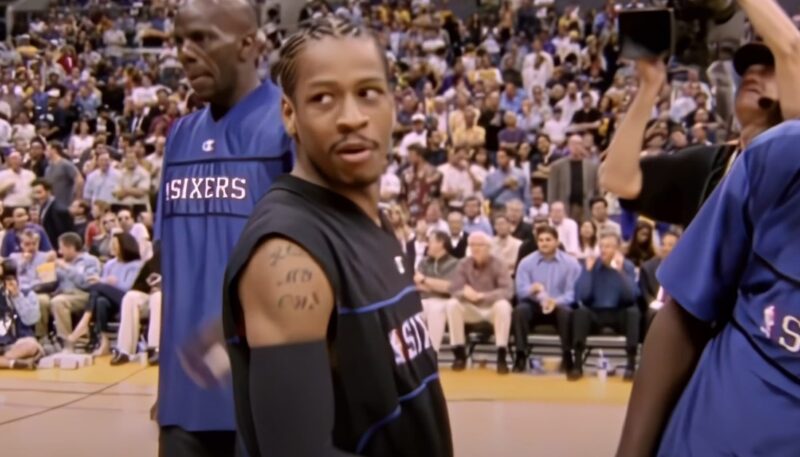
Alen Iverson, known for his fearless style on the court, made a major statement off-court by embracing streetwear—baggy clothes, chains, tattoos, and cornrows—styles that were bold and unapologetically rooted in hip-hop.
Iverson’s look and attitude clashed with the NBA’s traditional image, eventually leading to the league implementing a dress code in 2005, largely in response to his influence.
In 2000, Iverson also released a rap single, “40 Bars,” which stirred controversy for its explicit lyrics.
Though he didn’t pursue a long-lasting music career, the impact of his style and music extended far beyond the court, creating a lasting link between basketball and hip-hop.
Iverson’s influence not only shifted fashion within the NBA but also inspired countless young fans and players who saw him as a symbol of authenticity and individuality, helping solidify the hip-hop image within professional sports.
Damian Lillard
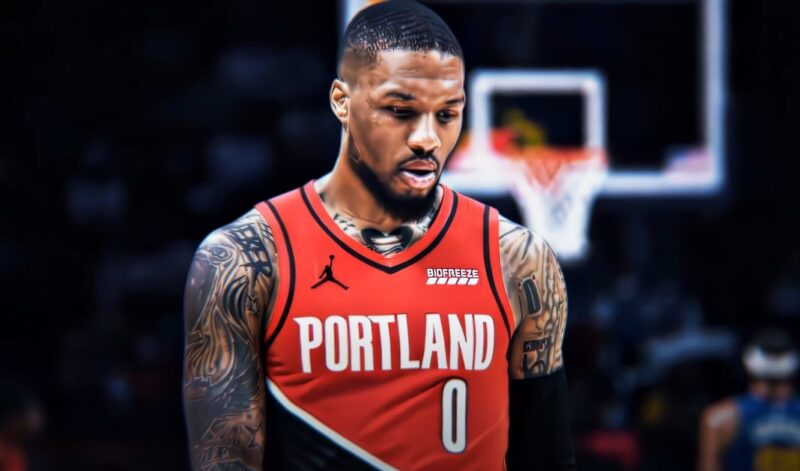
Also known as Dame D.O.L.L.A.
Unlike many athletes who dabble in music, Lillard has gained real respect within the industry, thanks to his lyrical talent, authentic storytelling, and dedication to the craft.
His music career began in 2016 with the release of his debut album, The Letter O, which included features from prominent artists like Lil Wayne and Jamie Foxx. Since then, he has released multiple albums, including Confirmed (2017) and Big D.O.L.L.A. (2019), each with positive reviews from fans and music critics.
He created his own label, Front Page Music, to support up-and-coming artists, and he performs live during off-seasons, taking his music seriously and showing dedication to both his NBA and music careers.
His presence in both fields marks a notable shift, proving that the line between professional sports and music is increasingly blurred.
Shaquille O’Neal – NBA Legend and Hip-Hop Pioneer
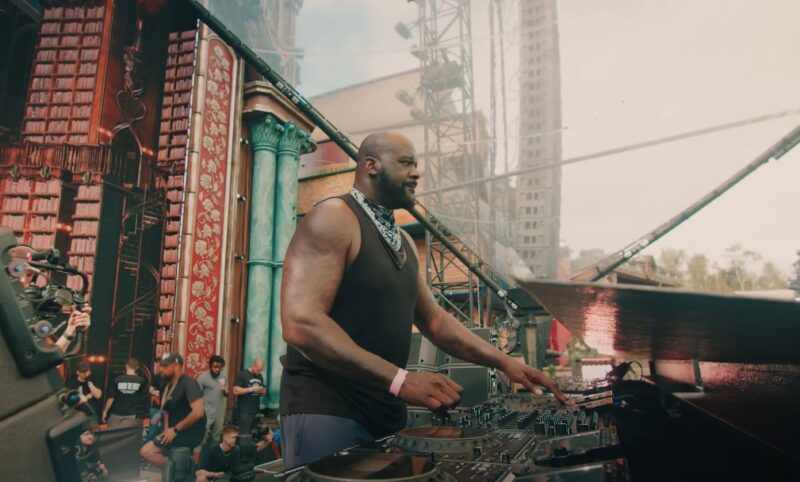
His 1993 debut album Shaq Diesel went platinum—a rare feat for an athlete-musician. Known for hits like “I Know I Got Skillz” and collaborations with icons like The Notorious B.I.G., Method Man, and RZA, Shaq gained respect in the hip-hop community.
His single “You Can’t Stop the Reign” with Biggie solidified his crossover appeal. Recently, as DJ Diesel, he’s brought his love of music to major festivals, showing his lasting influence at the intersection of sports and hip-hop.
Beyond his music and broadcasting career, Shaquille O’Neal continues to be a major voice in sports media, especially as part of TNT’s Inside the NBA team with Charles Barkley and Kenny Smith.
Recently, they each shared their top 50 players for the upcoming 2024-25 season, and naturally, it’s sparked a lot of buzz among fans. Each had a unique take—Shaq focused on players who have shown they can “win at that level,” while Barkley and Smith weighed in with their own criteria.
When Bleacher Report compiled their lists into one ranking, players like Nikola Jokic, Giannis Antetokounmpo, and Luka Doncic emerged at the top.
Hip-Hop’s Early Days in Rip City
The Rip City Rhapsody, or “Rip City Rap,” was initially created as a promotional track for the Trail Blazers during the 1990 NBA season, reflecting a time when hip-hop was just starting to break into mainstream culture.
The song featured some of the team’s notable players like Jerome Kersey, Terry Porter, and Buck Williams, who contributed verses to celebrate the team and connect with fans through music.
When the Blazers released the Greatest Hits CD in 2019, it included not only tracks from the original Rip City Rhapsody but also other recordings and remixes by Blazers players and fans.
This release coincided with a special fan event, where the team highlighted its longstanding ties with hip-hop and the city’s music scene.
The CD’s launch demonstrated how deep this connection runs, as the Blazers used it as a way to bridge past and present, tapping into Portland’s unique culture and celebrating its influence on hip-hop’s growth within the NBA.
Bottom Line
The impact of NBA players on hip-hop culture goes beyond just their ventures in music. Icons like Kobe Bryant, Allen Iverson, and Damian Lillard have played crucial roles in shaping the intersection of basketball and hip-hop, influencing everything from fashion to lifestyle.
Their contributions will be remembered not only for their achievements on the court but also for building a cultural bridge that brings basketball closer to hip-hop.
As future generations of athletes and artists build on this foundation, the line between sports and music continues to blur, strengthening the powerful bond between these two dynamic cultural worlds.
Related Posts:
- How Jelly Roll Turned His Pain into Profit - 2025 Net Worth
- 10 New Artists Who Turned Buzz Into Real Money in 2025
- Jack White's Wealth in 2025 - A Glimpse into His Net Worth
- 6 Easy Variations of D Major 7 for Acoustic Guitar Players
- How to Tune a Floyd Rose: Tips for Beginners and…
- Arizona Cardinals Greatest Players and Their Legacy…



